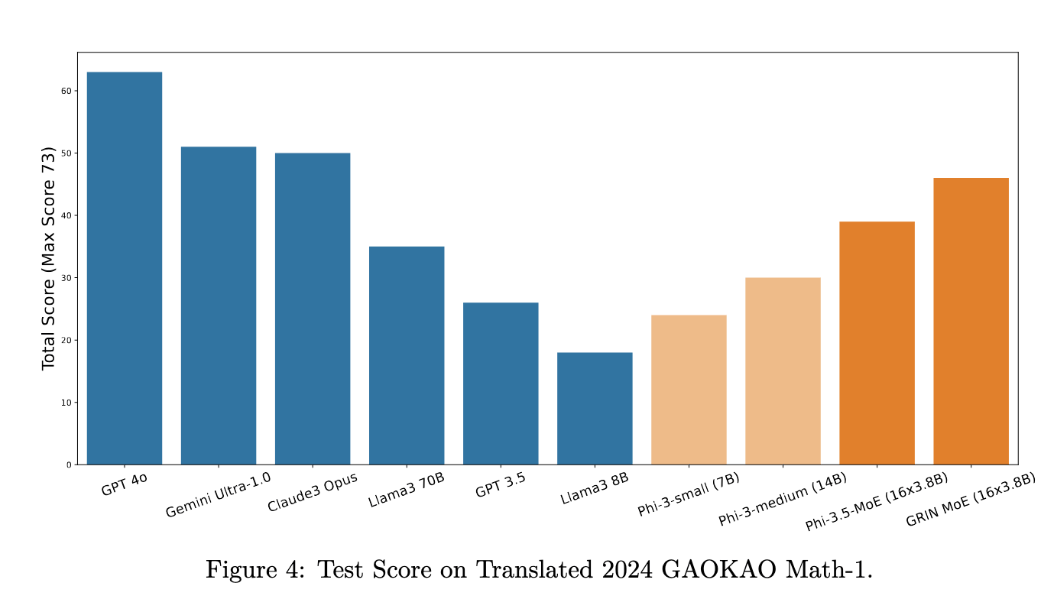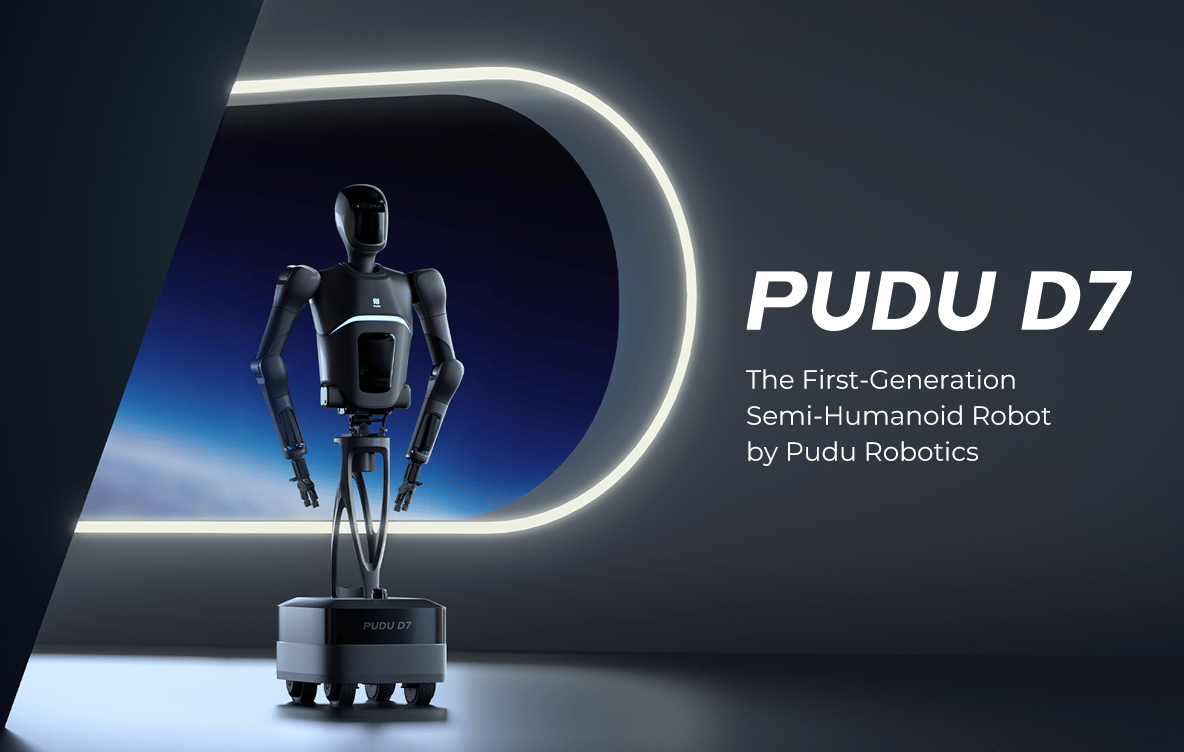Welcome back! This issue brings you cutting-edge developments in AI, from China's booming AI start-up scene to the launch of OpenAI’s Academy, and even a semi-humanoid robot redefining automation. Each story highlights significant trends, demonstrating how AI is reshaping industries and global innovation.
🌐 Top AI Highlights
OpenAI has launched the OpenAI Academy

OpenAI has launched the OpenAI Academy, a new initiative designed to enhance the skills and careers of developers, particularly in low- and middle-income countries (LMIC). The Academy aims to foster innovation and economic growth by awarding $1 million in API credits, providing technical guidance, and offering training from OpenAI experts. The initiative focuses on developing local AI talent in sectors such as healthcare, education, agriculture, and finance.
While the Academy does not restrict participants from using rival AI providers, some critics argue that it may lead to dependency on OpenAI’s technology. Despite this, developers receiving the credits are expected to benefit significantly. The Academy also supports mission-driven organizations through contests, incubators, and expert mentorship, fostering a global network of developers and encouraging collaboration.
To further expand access to AI resources, OpenAI is translating its benchmarks into multiple languages, making AI education more globally accessible. Although some concerns remain, the Academy is expected to empower developers to use AI for positive community impact, with more details on participation to be announced soon.
Microsoft Launched "GRIN-MoE" Gradient-Informed Mixture-of-Experts

GRIN-MoE (Gradient-Informed Mixture-of-Experts) is a cutting-edge AI model designed to enhance efficiency by activating only a subset of its parameters tailored to specific tasks, rather than all parameters like traditional dense models. This selective activation, guided by a technique called Gradient-Informed Routing via SparseMixer-v2, optimizes computational costs while maintaining strong performance.
GRIN-MoE has excelled in specialized tasks, achieving high scores on benchmarks such as MMLU (79.4), GSM-8K (90.4), and HumanEval (74.4), making it ideal for enterprise applications like automated coding and debugging. With 16 layers and just 6.6 billion active parameters, the model matches the performance of much larger models with fewer computational demands.
Although highly efficient, especially during training on GPUs, GRIN-MoE struggles with broader natural language processing tasks, showing room for improvement in general AI applications. Despite this, its scalable design and efficient architecture make it a promising solution for various AI-driven tasks, setting a new standard for sustainable, high-performance AI models.
PUDU D7 "Semi-Humanoid Robot By Pudu Technology

Pudu Technology has unveiled the PUDU D7, its first "semi-humanoid robot," expected to be fully commercialized by 2025. The PUDU D7 features advanced mobility, a human-like upper body, robotic arms, and an omnidirectional chassis, allowing it to perform tasks in various environments, from service-oriented spaces to industrial settings. The robot, developed by Pudu X-Lab, stands 65 inches tall, weighs 99 pounds, and has a bionic arm with 30 degrees of freedom, which can extend to 50 degrees with a hand attachment.
Powered by a battery with over 1 kWh, it operates for more than eight hours, reaches speeds of 2 m/s, and can lift up to 22 pounds with precise control. The PUDU D7 is equipped with a multi-layered intelligence system that merges data-driven embodied intelligence with advanced AI, allowing it to handle complex tasks, adapt to its environment, and improve over time. This semi-humanoid robot represents Pudu's vision of advancing a diverse range of robotic solutions in the service industry.
😍 Enjoying so far, share it with your friends!
🎓 AI Courses
What you will learn
Compare AI with human intelligence, broadly understand how it has evolved since the 1950s, and identify industry applications
Identify and use creative and critical thinking, design thinking, data fluency, and computational thinking as they relate to AI applications
Explain how the development and use of AI requires ethical considerations focusing on fairness, transparency, privacy protection and compliance
Describe how thinking skills embedded in Australian curricula can be used to solve problems where AI has the potential to be part of the solution
⭐⭐⭐
🚀 AI Ethics Consultant
LIST OF TOOLS
⚖️ AI Fairness 360 (IBM): IBM's toolkit for detecting and mitigating bias in machine learning models.
🔍 LIME (Local Interpretable Model-agnostic Explanations): A tool to explain the predictions of any machine learning classifier.
🔒 OneTrust: Compliance and risk management tool for privacy, security, and data governance.
🛡️ TrustArc: Compliance and risk management tool for privacy, security, and data governance.
🚀 Tech Glimpse of the Week
OpenAI and Jony Ive Collaboration
Jony Ive is collaborating with OpenAI CEO Sam Altman on an AI hardware project, funded by Ive and the Emerson Collective, with potential to raise $1 billion. Ive's company, LoveFrom, is designing the device, leveraging generative AI for advanced functionality. Specific details and a launch timeline are still under development.
Why it matters: This collaboration could redefine user interactions with AI-powered devices, offering more intuitive and advanced functionality.
Practical importance: The AI-driven device could streamline tasks and set new standards in both consumer and enterprise technology.
China’s leading AI start-ups eye fresh opportunities after OpenAI previews latest LLM
China's AI start-ups are seeking new opportunities following OpenAI's preview of its latest large language model (LLM), OpenAI o1. The model, designed to solve complex tasks and improve on previous models in science, coding, and mathematics, could drive industry shifts and create growth chances for emerging companies. Executives at the Apsara Conference, including Moonshot AI's founder Yang Zhilin, emphasized the potential of reinforcement learning to enhance AI capabilities and industry transformations.
Why it Matters: China's AI industry is poised for rapid growth as companies explore new capabilities introduced by OpenAI’s latest large language model. This could accelerate innovation and competition in the global AI landscape.
Practical Importance: Start-ups may find new business opportunities by applying advanced LLMs to solve complex problems in science, engineering, and industry.
Google DeepMind Introduced Self-Correction via Reinforcement Learning (SCoRe)
Google DeepMind has introduced a new AI method called "Self-Correction via Reinforcement Learning Score" aimed at improving the accuracy of large language models (LLMs) in complex mathematical and coding tasks. This approach uses reinforcement learning to allow LLMs to self-correct errors, leading to significant improvements in performance. The method enhances the models' ability to tackle challenging problems and could be a major advancement in fields requiring high accuracy and precision, such as programming and scientific calculations.
Why it Matters: This new AI approach enhances large language models' accuracy, offering improvements in areas like coding and mathematics.
Practical Importance: Industries relying on precision, such as tech and science, could leverage these models for more accurate and efficient problem-solving.
NVIDIA Corporation (NVDA) Partners with G42 to Advance Climate Technology
NVIDIA Corporation has partnered with G42, a leading AI and cloud computing company from Abu Dhabi, to advance AI in sectors like healthcare, energy, and public safety. The collaboration focuses on building high-performance infrastructure using NVIDIA’s GPUs and AI technology, alongside G42’s experience in implementing large-scale AI solutions. The partnership aims to drive innovation in artificial intelligence across industries in the Middle East and globally.
Why it Matters: This partnership boosts AI applications across critical sectors, particularly in healthcare and energy, fostering innovation in climate technologies.
Practical Importance: The collaboration may accelerate the development of AI-driven climate solutions, improving sustainability and resource management.
Social media platforms are using what you create for artificial intelligence. Here’s how to opt out
The article discusses how social media companies are introducing new tools and options to allow users to opt out of having their data used to train AI models. This comes amid growing concerns over privacy and the extensive use of personal information to develop AI technologies. Companies are responding to regulatory pressures and user demands for greater transparency and control over their data. These measures reflect a broader trend of tech platforms balancing AI innovation with data privacy rights.
Why it Matters: Increased user control over data marks a significant step toward balancing privacy and AI development in the tech industry.
Practical Importance: Individuals and businesses can safeguard their data from AI training models, ensuring greater transparency and protection of personal information
As AI accelerates, it's vital to understand both the opportunities and challenges it presents. From tools empowering developers to privacy concerns in social media, the AI world continues to evolve rapidly. Stay ahead of these trends as they unfold—more exciting news next time!
👥 Connect & Feedback!
👉 Join Us:
📧 Advertise In Weekly AI News:
📧 Contact directly at [email protected]
😍 Share with your friends!


